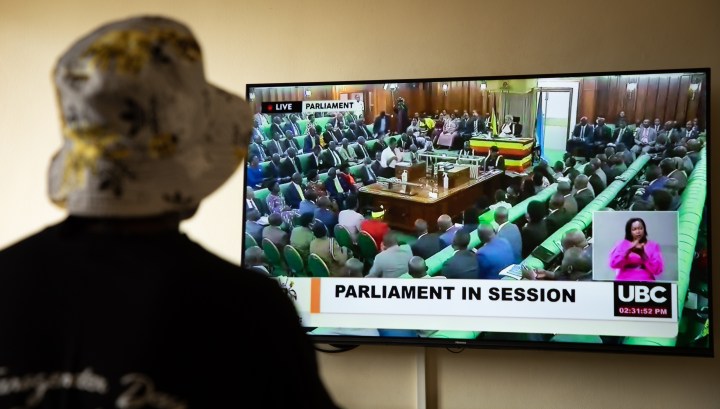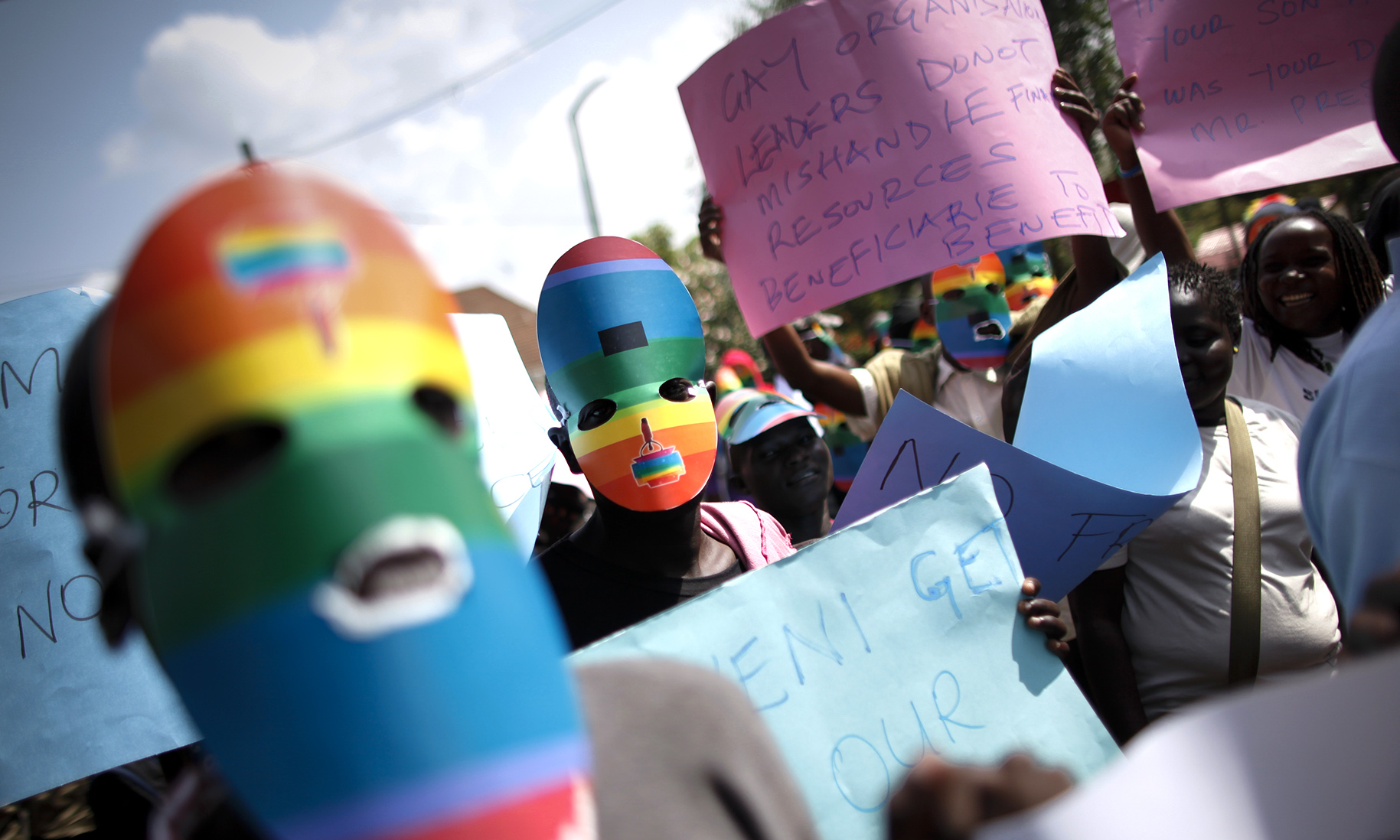LGBTQI+ CRIMINALISATION
The passing of Uganda’s draconian anti-gay bill provokes outrage in many parts of the world

Political, religious and human rights organisations urge President Yoweri Museveni not to sign draft legislation into law.
While South Africans were celebrating Human Rights Day this week, the parliament in homophobic Uganda passed legislation that criminalises simply identifying as LGBTQI+.
The law prescribes a life sentence for convicted homosexuals and the death penalty for “aggravated homosexuality”.
The passage of the 2023 Anti-Homosexuality Bill completely violates Uganda’s own constitution, many critics say, and has provoked domestic and international outrage. The UN, the US and others have called on President Yoweri Museveni not to sign the bill into law.
Volker Türk, the UN’s High Commissioner for Human Rights, said the passing of the “draconian” and “discriminatory” bill, which he called “probably among the worst of its kind in the world”, was a “deeply troubling development”.
“If signed into law by the president, it will render lesbian, gay and bisexual people in Uganda criminals simply for existing, for being who they are. It could provide carte blanche for the systematic violation of nearly all of their human rights and serve to incite people against each other,” Türk said in a statement.
US President Joe Biden had “grave concerns” about the bill as well as increasing violence targeting LGBTQI+ persons, White House spokesperson Karine Jean-Pierre said this week. “If the [bill] is signed into law and enacted, it would impinge on universal human rights, jeopardise progress in the fight against HIV/Aids, deter tourism and investment in Uganda, and damage Uganda’s international reputation.
“The bill is one of the most extreme anti-LGBQTI measures in the world. Human rights are universal – no one should be attacked, imprisoned or killed simply because of who they are or whom they love.”
A US official told CNN that the country’s ambassador to the UN, Linda Thomas-Greenfield, had spoken twice with Museveni to express “deep concern” about the bill.
Anglican Archbishop Thabo Makgoba has appealed for Museveni not to sign the bill into law. In a message on Thursday to his Ugandan counterpart, Archbishop Stephen Samuel Kaziimba Mugalu, said: “It is our prayer that as your country lives with the implications of this discriminatory bill, the Church will promote inclusiveness and care for all God’s people.
“It is our sincere prayer that the president will not sign this bill into law and we pray that the Church will urge him not to do so.”
The most disturbing aspect of the bill is that it creates the new crime of “aggravated homosexuality”, which could incur the death penalty for a “serial offender” or one who has gay sex involving incest; or without consent; or under duress; or with children; or – even with their consent – with people with mental or physical disabilities.
“If the law comes into force, it will violate the rights to freedom of expression and association; liberty; privacy; equality; freedom from discrimination, inhuman and degrading treatment; and a fair hearing – all guaranteed under Ugandan and international law – for all Ugandans,” said Human Rights Watch.
“The provisions of the anti-homosexuality bill are barbaric, discriminatory and unconstitutional,” tweeted Sarah Kasande, a lawyer and human rights activist in Kampala.
Just two MPs from the ruling party, Fox Odoi-Oywelowo and Paul Kwizera Bucyana, opposed the new legislation.
“The bill is ill-conceived, it contains provisions that are unconstitutional, reverses the gains registered in the fight against gender-based violence and criminalises individuals,” Odoi-Oywelowo told The Guardian.
Read more in Daily Maverick: Anglican Archbishop Makgoba appeals to Ugandan president to abandon anti-gay hate bill
Museveni has 30 days to sign the bill into law or reject it, and everyone is watching to see what he does. Last week he defiantly told parliament that Uganda would not embrace homosexuality, claiming that the West was seeking to compel other countries to “normalise … deviations”.
Once before, in 2009, Uganda introduced a bill that included the death sentence for gay sex. Later, in 2014, the Anti-Homosexuality Act became law, but it replaced the death penalty clause with a proposal for life in prison and was ultimately struck down.
Former South African president Jacob Zuma appeared to subtly endorse Uganda’s anti-gay stance when he appointed homophobic columnist Jon Qwelane as South African High Commissioner to Kampala in 2010.

A file picture dated 10 Februatry 2014 shows Kenyan supporters of the LGBTcommunity stage a protest against Uganda’s anti-gay bill in front of the Ugandan High Commission in Nairobi, Kenya.(Photo: EPA / DAI KUROKAWA)
The SA Human Rights Commission had taken Qwelane to court, saying he had advocated hatred against gay people in a 2008 column in the now defunct Sunday Sun newspaper. The Constitutional Court eventually ruled in July 2021 that Qwelane’s column had indeed been harmful to gay people and constituted hate speech.
Africa already had a dismal climate for gay people, as 32 out of 54 countries have criminalised consensual same-sex sexual acts, said Daniele Paletta, communication manager at ILGA World, an international advocacy group for LGBTQI+ rights.
In three states, Mauritania, Somalia and parts of Nigeria, homosexuality is a capital offence, according to ILGA World’s website.
Only South Africa and Cape Verde have legalised same-sex marriage and only SA provides constitutional protection of gay rights.
In its submission to Uganda’s parliament before the bill was passed on Tuesday, Human Rights Watch said it “would violate multiple fundamental rights guaranteed under Uganda’s constitution and international human rights instruments to which Uganda is a party”.
It noted that the African Commission on Human and Peoples’ Rights had ruled that governments were obliged to “prevent violence and other human rights violations against individuals on the basis of their sexual or gender identity”, and said the bill would “not only contravene that obligation, but pervert it by facilitating violence and rights violations”.
Human Rights Watch research found that, after the 2014 Anti-Homosexuality Act was passed in Uganda, LGBTQI+ people faced reduced access to health services and HIV prevention information. They also experienced discriminatory evictions by landlords, or were fired from their jobs on the basis of their perceived sexual orientation or gender identity.
The organisation called for the bill to be scrapped and for other penal code provisions that criminalise adult consensual same-sex conduct to be repealed.
DM168 approached the Department of International Relations and Cooperation and the Ugandan High Commission in Pretoria to give them an opportunity to comment on the bill but neither replied. DM168


















 Become an Insider
Become an Insider
Comments - Please login in order to comment.